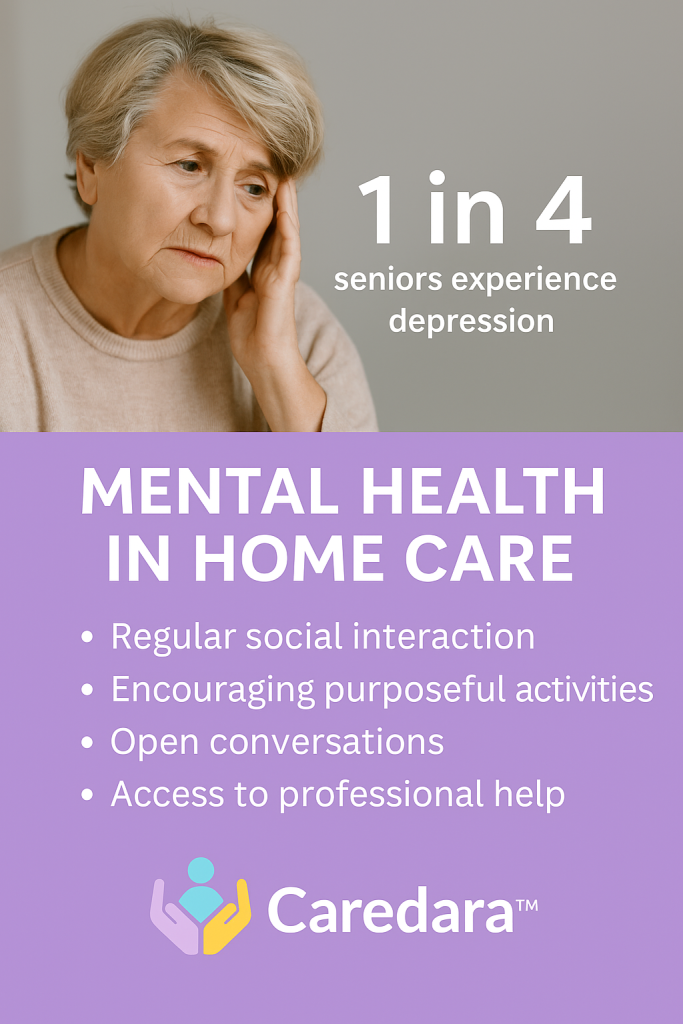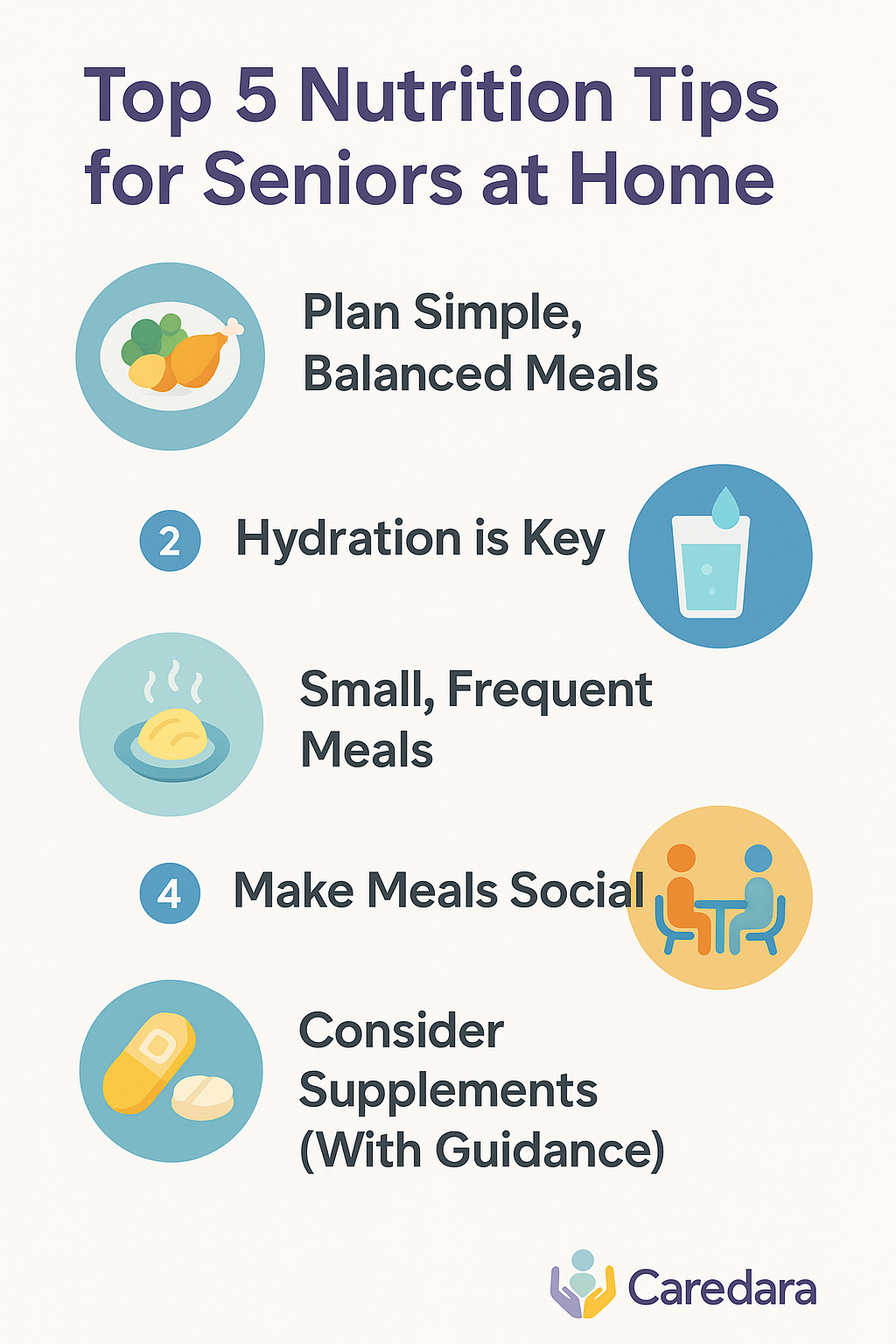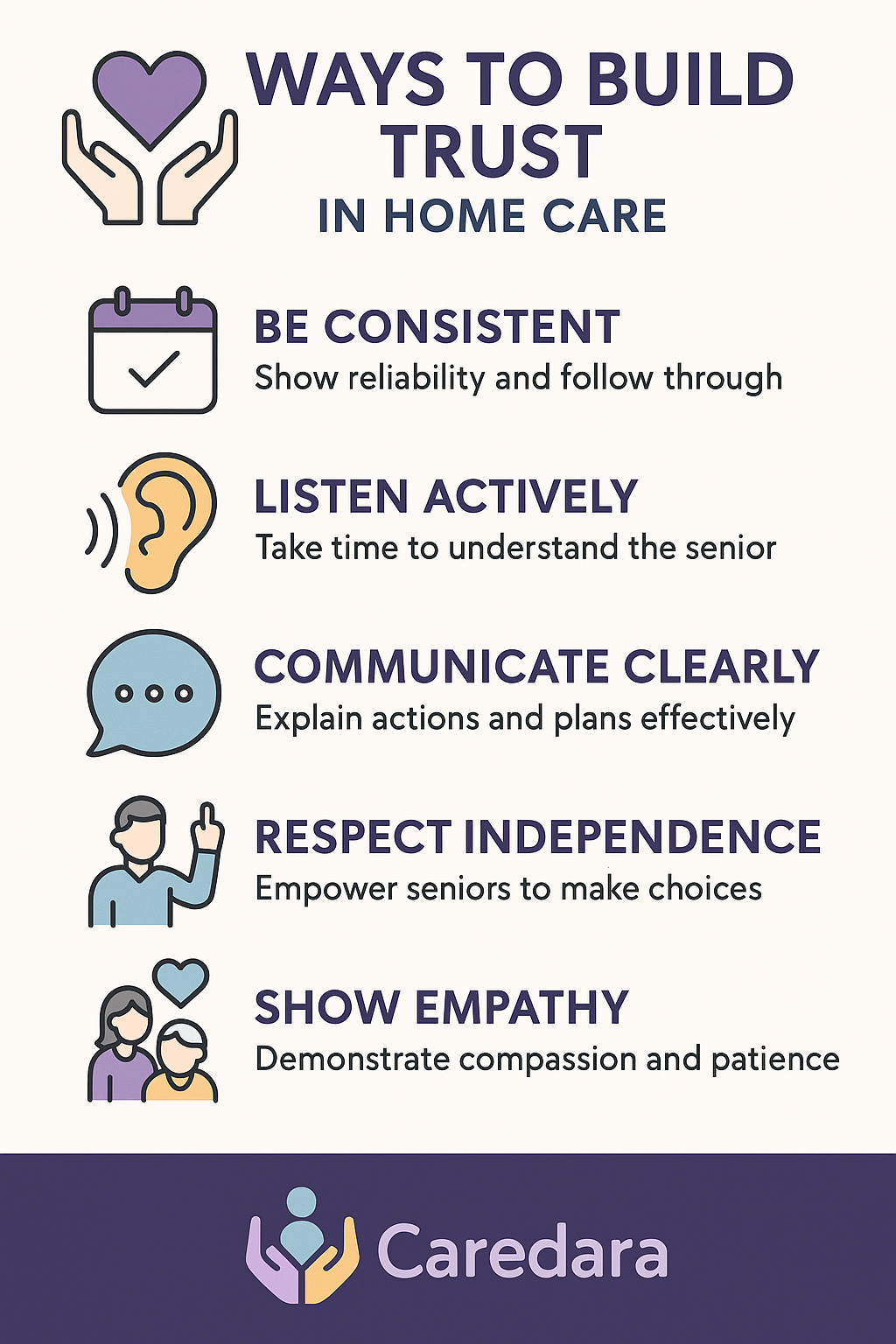
When people think about home care, they often picture physical support—help with bathing, mobility, or medication. While these are critical, one aspect of care is just as important but often overlooked: mental health.
The Mental Health Reality for Seniors
-
- According to the Canadian Mental Health Association, 1 in 4 seniors experience symptoms of depression.
- Seniors living alone are nearly twice as likely to report poor mental health compared to those living with others.
- Social isolation has been linked to a 50% increased risk of dementia and other serious health outcomes.
Why Mental Health Matters in Home Care
-
- Emotional Well-Being: Seniors who feel supported are more likely to stay engaged in daily life.
- Physical Health Connection: Depression and anxiety can worsen chronic conditions like heart disease and diabetes.
- Independence: Good mental health helps seniors maintain motivation, routines, and self-care.
- Quality of Life: Care is not just about extending years—it’s about making those years meaningful.
Supporting Mental Health at Home
-
- Regular Social Interaction
Visits from caregivers, family, or volunteers can reduce loneliness. - Encouraging Purposeful Activities
Hobbies like gardening, art, or light exercise provide meaning and joy. - Open Conversations
Caregivers should feel comfortable asking seniors about their feelings and listening without judgment. - Access to Professional Help
Counseling or therapy, whether in-person or virtual, can be valuable tools for seniors experiencing depression or anxiety. - Integrating Mind-Body Practices
Simple relaxation techniques such as deep breathing, meditation, or gentle yoga can reduce stress.
- Regular Social Interaction
The Role of Practitioners
Home care practitioners are often the first to notice changes in mood, behavior, or social withdrawal. By combining compassion with clinical awareness, they play a vital role in supporting seniors’ mental well-being alongside their physical health.
Looking Ahead
As Canada’s population ages, prioritizing mental health in home care will be critical. A truly holistic approach to care means recognizing that dignity, connection, and joy are as important as safety and medical support.
Because caring for the mind is just as essential as caring for the body.

